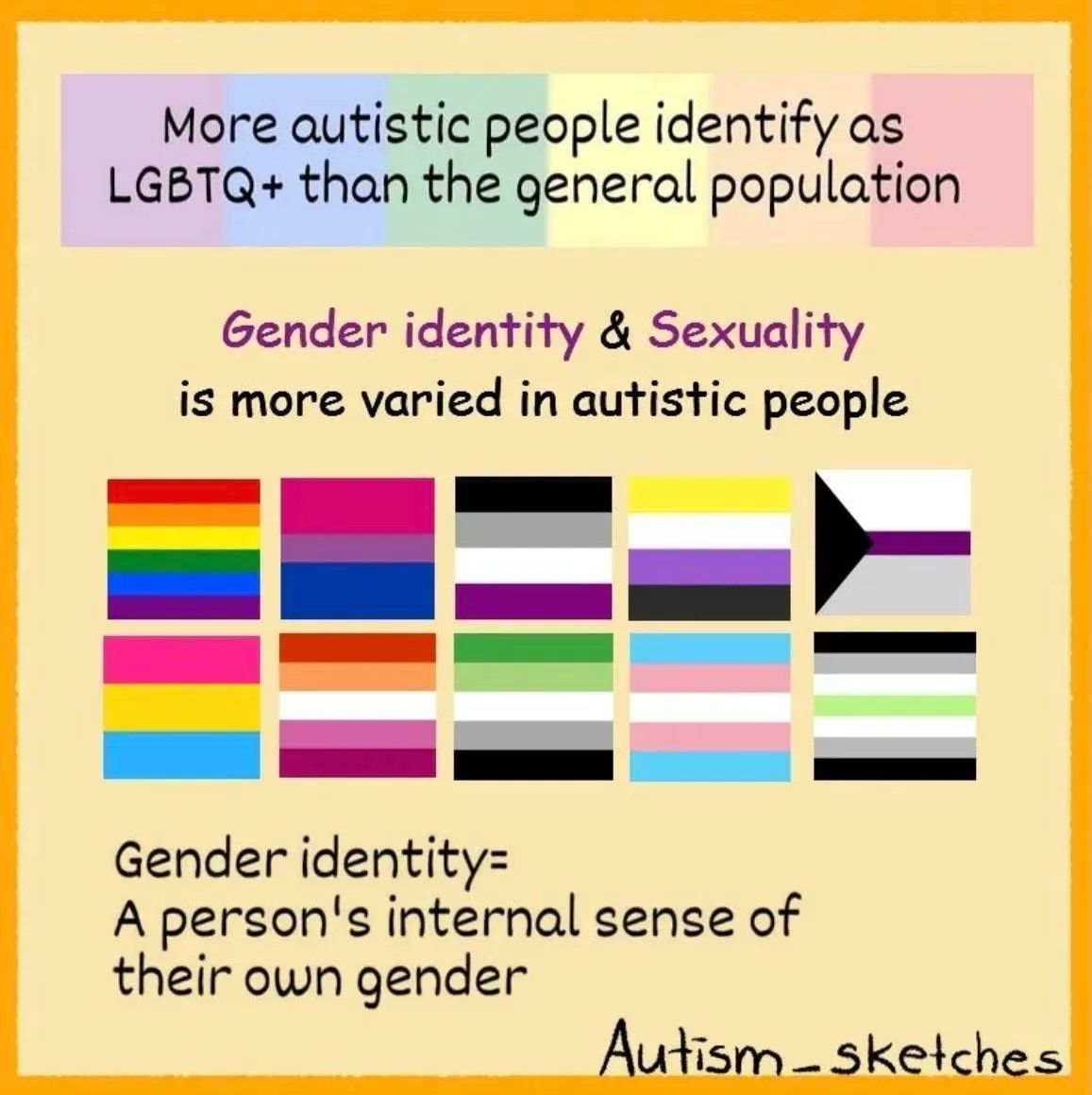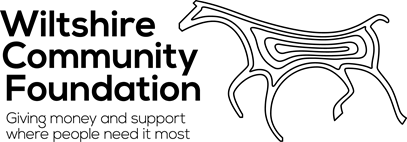It’s very obvious in some ways at the moment. But in the ‘80s and ‘90s, a law called Section 28 was in place in the UK. Then Prime Minister, Margaret Thatcher gave a speech at the 1987 Conservative Party conference saying, “Children who need to be taught to respect traditional moral values are being taught that they have an inalienable right to be gay. All those children are being cheated of a sound start in life – yes, cheated.” So, this led to the law being passed which stopped councils and schools from “promoting the teaching of the acceptability of homosexuality as a pretended family relationship.”
#iDare Blog: By young people, for young people
Being Autistic and Part of the LGBTQIA+ Community
There’s always been this stereotype that autistic people are uninterested or cannot get into romantic and intimate relationships but that is not true! In fact, autistic people can have healthy and happy relationships just like anyone else. On top of that, it’s more likely for autistic people to identify with a diverse range of sexual orientations and gender identities than neurotypical people. It’s estimated on average that autistic people are two or three more times likely to be part of said community.
Just some simple explanations and definitions:
- Gender is a social construct of norms behaviour and roles in societies, this is often confused with sex.
- Cisgender describes a person whose gender identity aligns with the sex they were assigned at birth.
- Transgender describes a person whose gender identity differs from the sex they were assigned at birth. This is an umbrella term which also includes non-binary.
- Sex refers to a person’s biological status and typically assigned at birth, often categorized as male, female or intersex.
- Sexual orientation is the physical, romantic and emotional attraction to those of the same and/or other genders.
- Heteronormative is relating to a world view that promotes heterosexuality as the normal or preferred sexual orientation.
Because there’s a higher percentage of autistic people experiencing gender dysphoria, it’s more common for autistic people to be transgender (or any other identities under that term). When it comes to sexuality, asexual and bisexual are the most common orientations for autistic people to feel comfortable with.
But why are more autistic people part of the LGBTQIA+ community? It may be because autistic people may be less influenced by social norms so they may be more inclined to present their internal selves more authentically. Some autistic queer people have also said that when they find out they were autistic, it can be a lot easier to understand their gender and sexuality.
Unfortunately, there is one common issue that face both the LGBTQIA+ and autistic communities: oppression.
One example of this oppression shows that people think autistic people are not capable of figuring out their identities. On top of that, if someone brings up something about their gender and/or sexuality, in some cases, they’re told, particularly by homophobes, not to be political and to stop forcing queer “beliefs” onto them. Which makes no sense, since pretty much most people have been brought up in a heteronormative way.
Rightly so, the LGBTQIA+ community held a lot of protests against the law with even actor, Sir Ian McKellen campaigning against it but the Conservative Party retaliated by issuing posters attacking Labour for putting “politics” into education. The British press didn’t help matters by furiously reporting on books that depict children with either two mums or two dads claiming that children were being put at risk and corrupting them. While on top of all that, the HIV/AIDS crisis was happening at the time so discrimination towards the LGBTQIA+ community was really high.
The “Don’t Say Gay” first started in Florida and Alabama, now with another twelve other states proposing similar bills, some governors even call it the “anti-grooming” bill. The bill eliminates all LGBTQIA+ discussions in schools. For example, a teacher can be fined or even fired for even mentioning they have a same-sex partner and teachers will be forced to “out” students to their parents even if the child’s parents are very unsupportive. Supporters of this bill have claimed that teaching about LGBTQIA+ topics is sexualising children when obviously it's not. Even the mere mention of pronouns makes them angry and scared for their children, and this is not an exaggeration! A lot of literature in schools and education are very heteronormative, like Romeo and Juliet but no one's “protecting” the children from those pieces of literature. It’s perfectly fine to show kids a story about a man and woman falling in love then both committing suicide but unacceptable to show stories about a young trans girl discovering her identity, boys knowing its ok to wear dresses and makeup or knowing about families who have two mums or two dads?

Also recently in the UK, conversion therapy was eventually banned, after years of promises from Boris Johnson and even when Theresa May was in office. But this ban excludes transgender conversion therapy. The PM even doubled-down on why he’s defending it. So, who is it that’s forcing their “beliefs”? Of course, the LGBTQIA+ community have reacted in the way you would expect, with anger and frustration. Labour MP Nadia Whitthome said the ban is “still not enough” and then added, “LGB comes with the T, and the Tories are not on our side.”
I myself, sadly expected something like this would happen from the Conversative Party considering it took them almost five years to get around to it after the initial promise back in 2018 by Thersea May. This plus the massive amounts of homophobia Boris Johnson has displayed in the past, from when he was the editor of The Spectator in 2000. If that wasn’t enough to persuade you of Johnson’s homophobia, he was a supporter of Section 28 saying, “This British legislator is voting in favour of Labour’s appalling agenda, encouraging the teaching of homosexuality in schools, and all the rest of it.” In 2019, when asked about those homophobic and racist comments he made, he refused to apologise and said, “I defend right to speak out.”
As a person who's part of the LGBTQIA+ community, I’m of course in full support for every trans person who have been and are being affected by this ban, it’s disgusting and I do all I can to be of support, for example I’ve signed petitions against the transgender conversion ban, I just wish there’s more I can do to help.

Since there is a lack of acceptance for both the autistic and the LGBTQIA+ communities, mental health issues are really high for individuals which also contributes to high suicide rates. There’s also little to no education about autism and the LGBTQIA+ so bullying in schools is a really big problem along with hate crime, with 64% of LGBTQIA+ people have experienced anti-LGBTQIA+ violence and abuse in 2021.
Here are some examples of people’s experiences with figuring themselves out from queerundefined.com
Maya has complex PTSD, and even the idea of flirting with a girl gives her serious anxiety. She thinks she could be asexual and/or aromantic, or maybe just too traumatized to date anyone. She decides to identify as neuroqueer for now, and maybe revisit it later, if she feels like it.
Sam is autistic, and has never really understood gender. They can’t really separate their feelings about gender from their autism, and they don’t particularly want to. They identify as neuroqueer, and work hard in activism to make the world better for disabled and LGBTQIA+ people.
To conclude, there are many similarities being part of both the autistic and LGBTQIA+ communities. Figuring out one’s identity is really important because there are some who have said that it feels like having two identities while there are some who say it’s shaped the way they identify which is where the term neuroqueer comes from. Unfortunately, being part of two communities is paired with the discrimination from society, the government or even friends and family.














